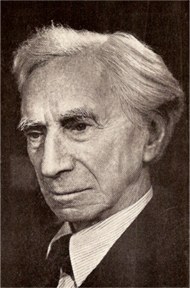Pacifism
Texts by Dr. Antonio Moreno González
Einstein's rejection of all things military (he saw parades as ridiculous and grotesque and renounced his German nationality when he was 17 in order to avoid doing military service) and his aversion to the arms race were constants in his life, as evidenced in his writings and in his membership of pacifist societies. He became ever more radical in his stance, calling on people to conscientiously object in order to oppose governments that chose war as a way of "achieving peace". However, with the persecution and extermination of the Jews by the Nazis, he toned down his opposition to participation in the war. In 1944, he rewrote his 1905 article on relativity by hand and auctioned it to raise funds for the allied war effort. It made six million dollars.
The fatal outcome of the war, with the dropping of two atomic bombs, led him once again to position himself radically against arms production, insisting again and again in that the solution did not lie in international treaties which at critical moments nobody observed or in international organisations (from which he always ended up resigning, because they never addressed the heart of the problems).
Einstein's last pro-pacifist action was his agreement to head the "Russell-Einstein Manifesto" of 1955. Presenting the manifesto in London, Russell told how he and Einstein had agreed on the first steps. When Einstein's letter arrived subscribing to the manuscript, he had already been dead a week. His call for world peace was summarised in the final paragraph of the manifesto:
"In view of the fact that in any future world war nuclear weapons will certainly be employed, and that such weapons threaten the continued existence of mankind, we urge the governments of the world to realize, and to acknowledge publicly, that their purpose cannot be furthered by a world war, and we urge them, consequently, to find peaceful means for the settlement of all matters of dispute between them."
Joseph Rotblat was a member of the Manhattan project team which built the first atom bomb in America, but resigned before production concluded and was consequently accused of being a Russian spy. He is the only surviving signatory of the manifesto. In an article in El Mundo (14/4/2005), he spoke about how the manifesto was first developed in Great Britain at Russell's initiative, with collaboration from Rotblat. They wanted to bring the most prestigious scientists on board; There were eleven signatories, but undoubtedly the most internationally renowned was Einstein. Rotblat writes:
"He was a scientist but a realist and aware of what was going on in the world. He was quite the opposite of people's concept of a scientist -absent-minded, naive and immersed in their work. He was fully aware and trying to get something done. I admire him not only as a great man of science but also as a great human being. I think if he were still alive, he would still be working on his theories. But he would be working towards peace."
The Russell-Einstein Manifesto led to the Pugwash Conferences on Science and World Affairs, awarded the 1995 Nobel Peace Prize.

Bertrand Russell (1872 - 1970)
